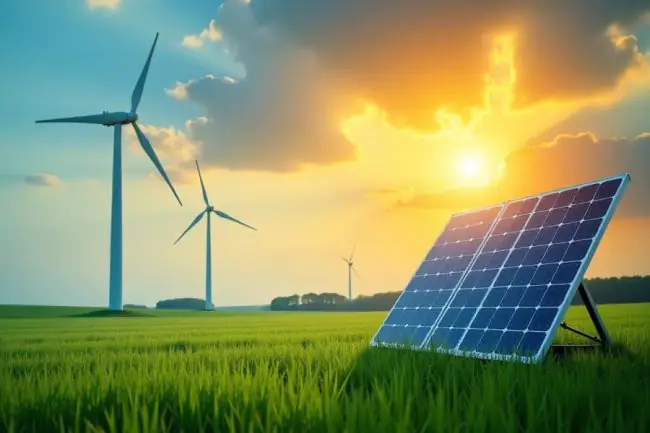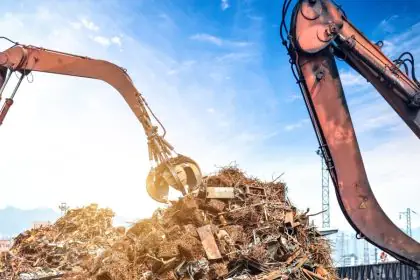Defining Global Warming
Global warming refers to the long-term increase in Earth’s average surface temperature due to human activities, primarily the emission of greenhouse gases (GHGs). These gases, including carbon dioxide (CO2), methane (CH4), and nitrous oxide (N2O), trap heat in the atmosphere, leading to a gradual rise in temperatures.
This phenomenon is a significant aspect of climate change, which encompasses not only rising temperatures but also the associated impacts on weather patterns, ecosystems, and human health. The term global warming is often used interchangeably with climate change, but it specifically focuses on the temperature rise caused by increased GHG concentrations in the atmosphere.
How Global Warming Differs from Climate Change
While global warming deals primarily with rising temperatures, climate change includes a broader range of changes in climate patterns, including altered precipitation patterns, sea-level rise, and increased frequency of extreme weather events.
Climate change can result from natural factors, such as volcanic eruptions or variations in solar radiation, but the current acceleration of climate change is primarily attributed to human activities.
Understanding the distinction between these terms is important for grasping the full scope of environmental challenges we face today.
Signs of Global Warming
Recognizing the signs of global warming is important for understanding its impact. Some observable indicators include:
- Melting Ice Caps and Glaciers: Polar ice sheets are shrinking, leading to rising sea levels. The Arctic is experiencing some of the most dramatic changes, with ice extent at historic lows.
- Increased Ocean Temperatures: Warmer oceans affect marine life and weather patterns, contributing to coral bleaching and shifting fish populations.
- Shifts in Wildlife Habitats: Many species are migrating to cooler areas or higher altitudes, disrupting ecosystems. For instance, the migration patterns of birds and other wildlife are changing, affecting food chains.
- Extreme Weather Events: Increased frequency and intensity of hurricanes, droughts, and floods have been linked to climate change, causing significant damage to communities and ecosystems.
Causes of Global Warming
Greenhouse Gas Emissions
The primary driver of global warming is the increase in greenhouse gases. Major sources of GHG emissions include:
- Burning Fossil Fuels: The combustion of coal, oil, and natural gas for energy and transportation is the largest source of CO2 emissions. Transportation alone accounts for a significant percentage of global emissions.
- Industrial Processes: Manufacturing and chemical production release significant amounts of GHGs, including emissions from cement production and metal manufacturing.
Deforestation and Land Use Changes
Forests act as carbon sinks, absorbing CO2 from the atmosphere. Deforestation for agriculture, urban development, and logging reduces the number of trees available to absorb CO2, exacerbating global warming. Moreover, land use changes can disrupt local climates and contribute to habitat loss.
In Spain, deforestation and land use changes are influenced by agricultural expansion and civilization, which can lead to biodiversity loss and increased carbon emissions.
Impact of Industrialization
The rapid industrialization of developing countries has led to increased energy consumption and higher emissions of greenhouse gases. As industries expand, the demand for fossil fuels rises, leading to greater CO2 emissions.
The transition to sustainable energy sources is vital for reducing industrial impacts. Spain, for instance, has been investing in renewable energy to combat the effects of industrialization on the environment.
Role of Agriculture in Global Warming
Agriculture contributes to global warming through practices such as livestock production, which emits methane, and the use of fertilizers that release nitrous oxide.
The livestock sector is responsible for a significant portion of global emissions due to methane produced during digestion and manure management. Moreover, land clearing for agriculture often leads to deforestation, compounding the problem.
In Spain, traditional agricultural practices can also contribute to environmental degradation, necessitating a shift toward more sustainable methods.
Effects of Global Warming
Rising Sea Levels and Coastal Flooding
As global temperatures rise, polar ice melts, and ocean water expands, leading to rising sea levels. Coastal areas, particularly in Spain, face increased flooding risks, threatening homes, infrastructure, and ecosystems.
Areas like the Costa del Sol are especially vulnerable, with rising tides and increased storm surges posing a threat to local economies reliant on tourism and fishing.
Changes in Weather Patterns and Extreme Weather Events
Global warming disrupts traditional weather patterns, resulting in unpredictable and extreme weather events. Spain has experienced increased heatwaves, intense storms, and prolonged droughts, impacting agriculture and water supplies.
The Mediterranean region is particularly susceptible to climate change, with changes in rainfall patterns affecting crop yields and water availability.
Depletion of Natural Resources
As temperatures rise, natural resources such as freshwater are becoming scarcer. Increased evaporation rates and changing precipitation patterns strain water supplies, posing challenges for agriculture and human consumption.
In Spain, water scarcity is an ongoing issue, with regions like Andalusia facing significant challenges in managing water resources for agriculture and daily use.
Impact on Wildlife and Ecosystems
Global warming affects ecosystems and biodiversity. Many species face habitat loss and altered migration patterns.
In Spain, iconic species like the Iberian lynx and the brown bear are at risk due to changing habitats and food availability. Additionally, the pressure on marine ecosystems from warming oceans and overfishing can disrupt the delicate balance of marine biodiversity.
Health Implications for Humans
The effects of global warming extend to human health. Increased heat can lead to heat-related illnesses while changing weather patterns can contribute to the spread of infectious diseases.
Vulnerable populations, such as the elderly and those with preexisting conditions, are at higher risk. Moreover, air pollution exacerbated by climate change can lead to respiratory problems and cardiovascular diseases.
Addressing Global Warming
Renewable Energy Solutions
Transitioning to renewable energy sources such as solar, wind, and hydroelectric power is important for mitigating global warming.
Spain has made significant steps in renewable energy, becoming a leader in solar and wind energy production.
By investing in these sustainable technologies, the country aims to reduce its reliance on fossil fuels and lower greenhouse gas emissions.
Policy Initiatives and International Agreements
Governments play a vital role in addressing global warming through policy initiatives and international agreements like the Paris Agreement.
Spain’s commitment to reducing emissions and increasing renewable energy usage aligns with global efforts to combat climate change.
Local initiatives, such as promoting energy efficiency and sustainable urban planning, can also contribute to a more resilient future.
Individual Actions to Combat Global Warming
Every individual can contribute to the fight against global warming by adopting sustainable practices. Some actions include:
- Reducing Energy Consumption: Simple actions like turning off lights when not in use, using energy-efficient appliances, and insulating homes can significantly reduce energy consumption.
- Using Public Transport: Opting for public transportation, biking, or walking instead of driving can lower personal carbon footprints.
- Supporting Local and Sustainable Products: Choosing local produce and products reduces transportation emissions and supports sustainable practices.
Educating Others
Spreading awareness about global warming and its effects can empower communities to take action. Hosting local workshops, sharing information on social media, and participating in community clean-up events can foster a collective effort toward sustainability.
Conclusion
Understanding global warming is essential for boosting awareness and driving action against climate change. By recognizing its definition, causes, and effects, individuals can take meaningful steps toward a sustainable future.
From adopting renewable energy solutions to supporting policies aimed at reducing emissions, each action contributes to combating global warming and protecting our planet for future generations.
As we move forward, it is vital to engage in open discussions, educate ourselves and others, and remain proactive in addressing this pressing issue. Together, we can create a more sustainable world for ourselves and future generations.
FAQs
What are the 5 main causes of global warming?
The main causes include greenhouse gas emissions, deforestation, industrialization, agriculture, and waste management.
What are the 5 impacts of global warming?
Impacts include rising sea levels, extreme weather events, resource depletion, biodiversity loss, and health risks.
What is the main effect of global warming?
The main effect of global warming is the rise in Earth’s average temperature, leading to various environmental and social challenges.
What are 5 ways to stop global warming?
Ways to combat global warming include using renewable energy, reducing waste, conserving water, supporting sustainable practices, and advocating for policy changes.






